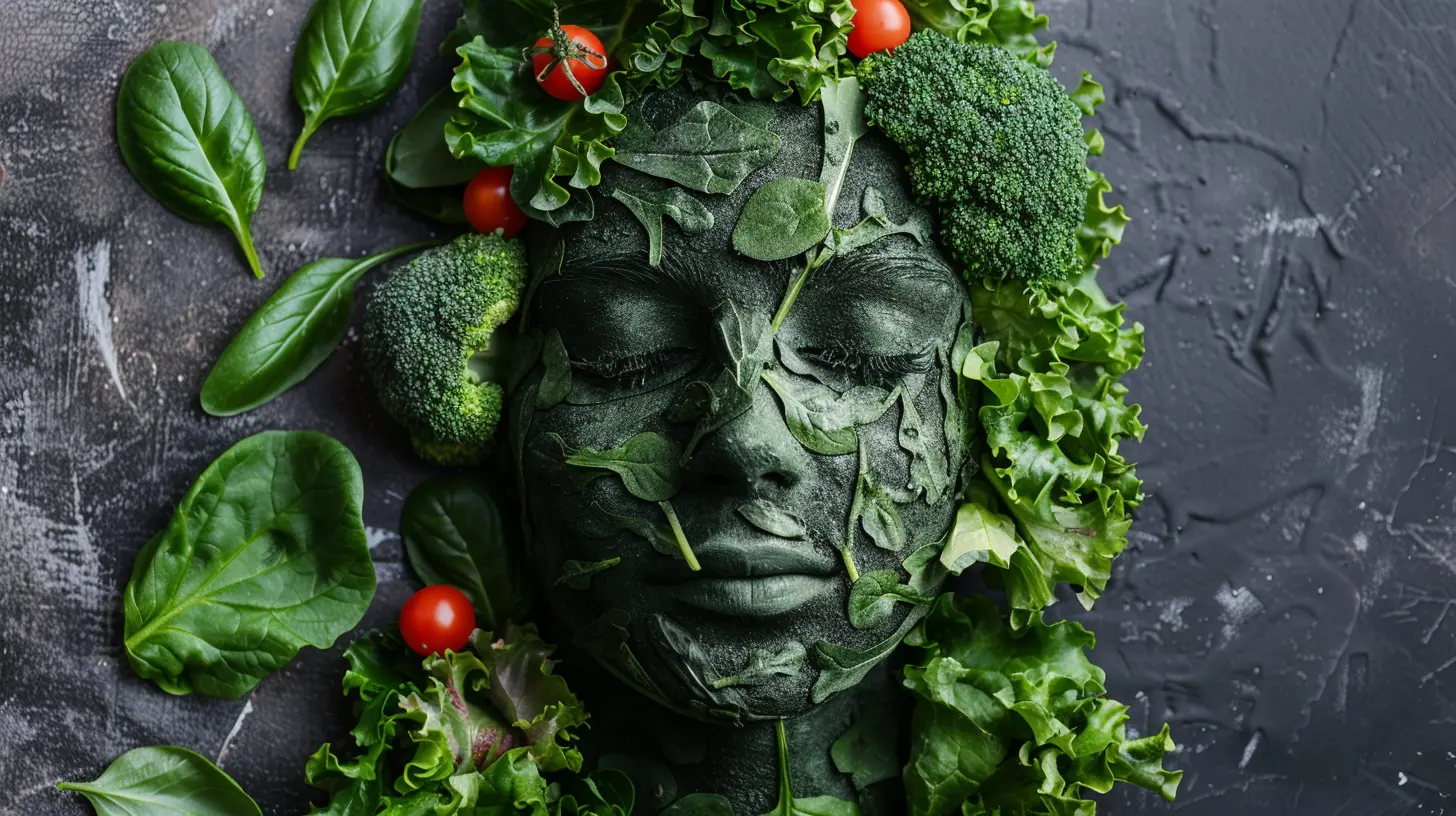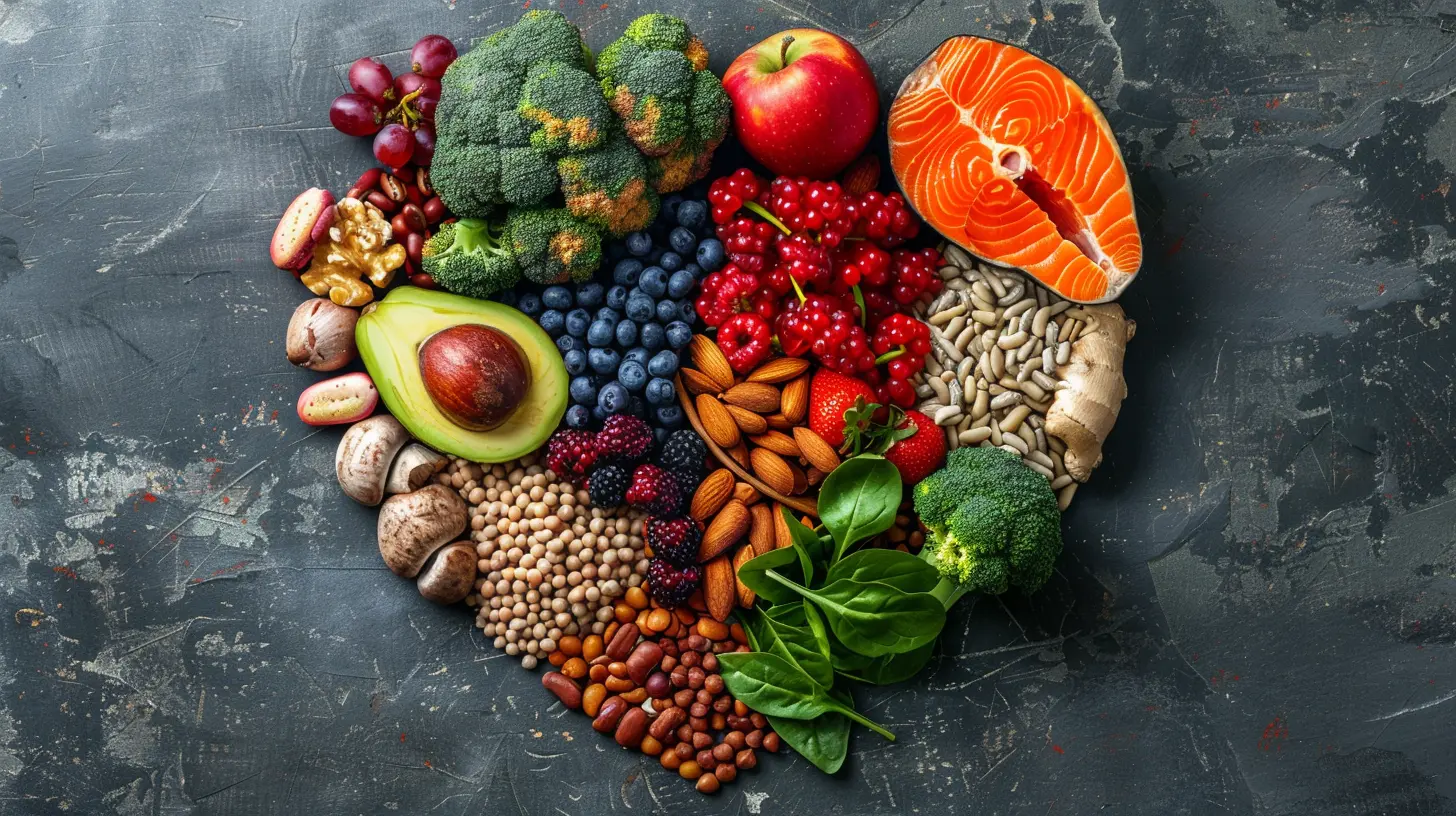The Connection Between Plant-Based Foods and Better Mental Health
21 October 2025
Let’s be honest — we all want to feel good. Not just physically, but mentally too. The kind of good where you wake up with energy, your mind feels clear, and you’re not getting dragged down by stress, anxiety, or brain fog. But here’s something many people overlook: what you eat can mess with — or massively help — your mood.
Yup, that’s right. There’s a growing body of research and real-life stories showing a solid connection between eating more plant-based foods and better mental health. And we’re not talking about some woo-woo wellness trend. We’re talking about science-backed, gut-brain-focused, common-sense stuff that can have powerful effects on how your brain and body feel every day.
So, grab your smoothie or your chickpea curry (or both, you overachiever) and let’s dive into how plant foods could be giving your mental health the glow-up it deserves.
What Exactly Is a Plant-Based Diet?
Before we go full brain-food geek mode, let’s clear the air. A plant-based diet simply means focusing primarily on foods that come from plants — veggies, fruits, legumes, whole grains, nuts, seeds, herbs, and spices. It’s not necessarily vegan or vegetarian, though it can be.Some folks still eat a bit of fish or dairy occasionally. But the star of the plate? Plants. Glorious, colorful, nutrient-loaded plants.
The Gut-Brain Connection: Where It All Begins
Ever felt "butterflies in your stomach" before a big meeting? That’s not just a weird saying — your gut and brain are actually in constant communication through a superhighway called the vagus nerve.This connection is part of something experts call the gut-brain axis, and it's kind of a big deal. Around 90% of your body's serotonin (aka your "happy hormone") is made in the gut. Not the brain. The gut.
Now here's where it gets interesting — the health of your gut microbiome (that world of trillions of bacteria living in your digestive tract) plays a massive role in your mood, stress levels, and even your risk for depression.
So what feeds your gut microbes best? You guessed it: plant-based foods.
Fiber: The Unsung Hero of Mental Health
Fiber doesn’t really get the hype it deserves. It’s not glamorous like protein or buzz-worthy like antioxidants, but when it comes to mental health, fiber is a total game-changer.Why? Because it feeds your good gut bacteria. When you eat fiber-rich foods (we’re talking lentils, beans, oats, veggies), your gut microbes break it down into short-chain fatty acids, like butyrate. These guys reduce inflammation and help keep the gut lining strong — both of which are linked to lower risks of depression and anxiety.
Basically, fiber helps you poop AND think better. Double win.
Say Goodbye to Brain Inflammation
Inflammation is like that one guest at a party who overstays their welcome. A little bit? Fine. But too much? Total chaos.Chronic inflammation, especially in the brain, has been linked to mood disorders like depression, anxiety, and even brain fog. The good news? Many plant-based foods are naturally anti-inflammatory.
Leafy greens, berries, turmeric, walnuts, chia seeds — they’re all loaded with antioxidants and polyphenols that help your brain chill out and function better.
You know how you feel clear and calm after a hike in the woods? That’s kind of what anti-inflammatory foods do for your brain. They reduce the noise and help your mental clarity return.
Micronutrients: Small But Mighty Mood Boosters
Let’s talk vitamins and minerals for a sec. These little nutrients might be small, but they’re mighty when it comes to mental health. And guess what? Plants are PACKED with them.Here are just a few MVPs of the mental health world:
- Folate (Vitamin B9): Found in leafy greens, lentils, and citrus fruits. Low folate levels have been linked to depression.
- Magnesium: This calming mineral is in nuts, seeds, avocados, and whole grains. It helps regulate mood and sleep.
- Vitamin C: Found in citrus, bell peppers, and broccoli. It reduces oxidative stress and supports a healthy nervous system.
- Zinc: Important for brain function and mood regulation. Pumpkin seeds and legumes are great plant-based sources.
- Omega-3s: Found in flaxseeds, chia seeds, and walnuts. These healthy fats help reduce anxiety and support brain cell communication.
Eating a colorful, plant-heavy diet naturally provides a cocktail of these nutrients your brain needs to thrive. No need for ten different pill bottles on your shelf.
Blood Sugar Swings = Mood Swings
You ever feel totally fine one minute, and then super irritated or anxious the next — and then suddenly realize you’re just hungry? That’s your blood sugar messing with your vibe.Refined carbs and sugar (think donuts, white bread, soda) create quick spikes and crashes in blood sugar. Those crashes? They’re tied to mood swings, fatigue, irritability, and even anxiety.
Plant-based meals high in fiber and complex carbs — like brown rice with veggies, or quinoa salad with black beans — help keep your blood sugar steady. That means fewer hangry moments, more emotional balance, and a calmer mind.
The Meat and Mental Health Dilemma
Okay, let’s address the elephant in the kitchen — meat. Is it really that bad for mental health?Well, excessive consumption of red and processed meats has been linked to higher levels of depression and anxiety in multiple studies. It’s not the meat itself necessarily, but more about what it’s lacking (fiber, antioxidants) and what it contributes (saturated fat, inflammation).
That doesn’t mean you have to give up meat entirely. But making plants the foundation of your plate and treating meat like a side note instead of the main act? That can make a difference in how you feel mentally.
Real Talk: Personal Testimonials and Stories
Let’s get real here. This isn’t just about lab rats and scientific journals. The mental health benefits of plant-based eating are showing up in real people’s lives — maybe even people like you and me.There are countless stories online (and maybe among your friends) of folks who say they felt more emotionally stable, less anxious, and more mentally clear after switching to a plant-rich diet. Their energy improved, their moods were more consistent, and they even managed chronic mental health challenges better.
These stories matter because they put a human face on the science. It’s not magic — it’s just really good food doing what it’s supposed to do.
Transitioning To a Plant-Based Diet Without Losing Your Mind
Now, if you're someone who’s used to eating meat at every meal, the idea of "going plant-based" can feel overwhelming, or let’s be honest — boring. But it doesn’t have to be.Start small. Here’s how you can dip your toes:
- Try Meatless Mondays.
- Swap cow’s milk for oat or almond milk.
- Add a handful of spinach to your smoothie.
- Experiment with one new plant-based recipe per week. (Hello, chickpea curry!)
- Snack on nuts or fruit instead of chips.
- Use lentils instead of ground beef in tacos or spaghetti sauce.
You don’t have to go all in overnight. Just start wherever you are. Your brain (and your body) will thank you.
Don’t Forget Lifestyle Factors That Work With Diet
Look, food is powerful — but it’s not the only piece of the mental health puzzle. If your diet’s on point but you’re not sleeping, moving your body, or managing stress in other ways, you might still feel like garbage.Pair your plant-based meals with:
- Daily movement: Walk, dance, stretch — whatever gets you going.
- Good sleep hygiene: Aim for 7–9 hours a night.
- Mindfulness or journaling: Help your brain unload mental baggage.
- Connection: Laugh, hug, chat — we humans need each other.
Think of it like stacking habits. Each one boosts the others, and before you know it, you’re functioning like your best self again.
The Bottom Line: Your Brain Craves Plants
There’s no denying it: the connection between what you eat and how you feel mentally is strong — and plant-based foods come out on top when it comes to boosting mood, calming the mind, and supporting long-term brain health.It’s not just about cutting stuff out. It’s about adding in the good stuff — the leafy greens, the berries, the beans, the whole grains. When you treat your gut right, your brain gets the message. And honestly? A happier, clearer, calmer mind may just be a few meals away.
So next time you’re debating between a burger and a big veggie-packed bowl, just ask yourself… how do I want to feel?
all images in this post were generated using AI tools
Category:
Plant Based DietAuthor:

Jackson Mahoney
Discussion
rate this article
1 comments
Rory McGeehan
This article beautifully highlights the powerful link between plant-based nutrition and mental well-being. By embracing more whole foods, we not only nourish our bodies but also elevate our minds. Let's celebrate this journey towards better health together!
November 5, 2025 at 5:11 AM

Jackson Mahoney
Thank you for your thoughtful comment! I’m glad you found the article resonates with the importance of plant-based nutrition for mental well-being. Let's continue to inspire each other on this journey!

